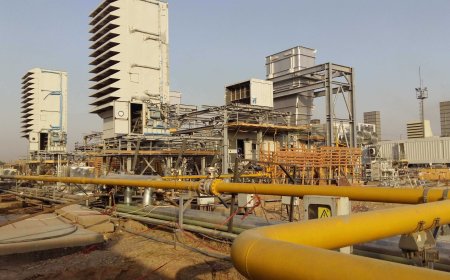Agricultural Fuel Oil: Powering the Backbone of Farming Operations

Agricultural fuel oil plays a vital role in modern farming, serving as the energy source that drives many essential agricultural machines and systems. From tractors and harvesters to irrigation pumps and grain dryers, fuel oil ensures that farms run smoothly and efficiently. As agriculture becomes increasingly mechanized and technology-driven, the demand for reliable, cost-effective, and environmentally compliant fuel sources continues to grow.
What is Agricultural Fuel Oil?
Agricultural fuel oil, often referred to as "red diesel" or "dyed diesel" in some countries, is a low-tax diesel variant specifically intended for off-road use in agricultural and industrial machinery. It is chemically similar to standard diesel but is colored red or green to differentiate it from taxable on-road diesel. This dye allows authorities to identify and prevent its illegal use in standard road vehicles.
In many countries, agricultural fuel oil is subsidized or taxed at a lower rate to support farmers, helping reduce the financial burden of fuel costs associated with food production.
Common Uses in Agriculture
-
Tractors and Harvesters: Fuel oil powers the engines of tractors and combinescrucial machines for planting, cultivating, and harvesting crops.
-
Irrigation Systems: Diesel-powered pumps are often used in areas without reliable access to electricity.
-
Grain Dryers and Heaters: Fuel oil is burned to produce heat needed to dry grain and regulate temperature in greenhouses or livestock housing.
-
Transportation: While not used on public roads, fuel oil powers vehicles that transport goods within farms or between fields.
Benefits of Agricultural Fuel Oil
-
Cost Efficiency: Lower taxes and subsidies make it more affordable than standard diesel, reducing operational costs for farmers.
-
Availability: It is widely accessible through agricultural co-ops and fuel distributors.
-
Energy Density: Diesel fuel has a high energy density, which is ideal for the heavy-duty machinery used in farming.
Environmental and Regulatory Considerations
While agricultural fuel oil is crucial for productivity, it raises environmental concerns due to carbon emissions and potential soil or water contamination from spills or improper storage. To address these issues, many governments have implemented regulations regarding:
-
Storage and Handling: Farmers must adhere to guidelines for tank installation, spill prevention, and fuel containment.
-
Emission Standards: New machinery is required to meet stringent emission standards (e.g., EPA Tier 4 in the U.S. or Stage V in Europe).
-
Transition to Biofuels: There is growing interest in renewable diesel and biodiesel blends that reduce carbon footprints while maintaining performance.
The Future of Agricultural Fuel
The future of agricultural fuel is poised to evolve alongside advances in sustainable energy. Innovations include:
-
Biofuel Integration: Many farms are already blending biodiesel with conventional diesel to lower emissions.
-
Electric and Hybrid Equipment: Battery-powered tractors and electric irrigation systems are emerging in pilot programs and early adoption areas.
-
Hydrogen and Synthetic Fuels: These technologies are still in development but offer promising long-term alternatives.
Conclusion
Agricultural fuel oil remains an indispensable energy source in farming, enabling the mechanized efficiency that modern agriculture demands. While cost-effective and readily available, it faces pressure from environmental and regulatory demands. As the industry evolves, a balanced approach combining traditional fuel with emerging clean energy alternatives will be key to sustainable agricultural growth.

































